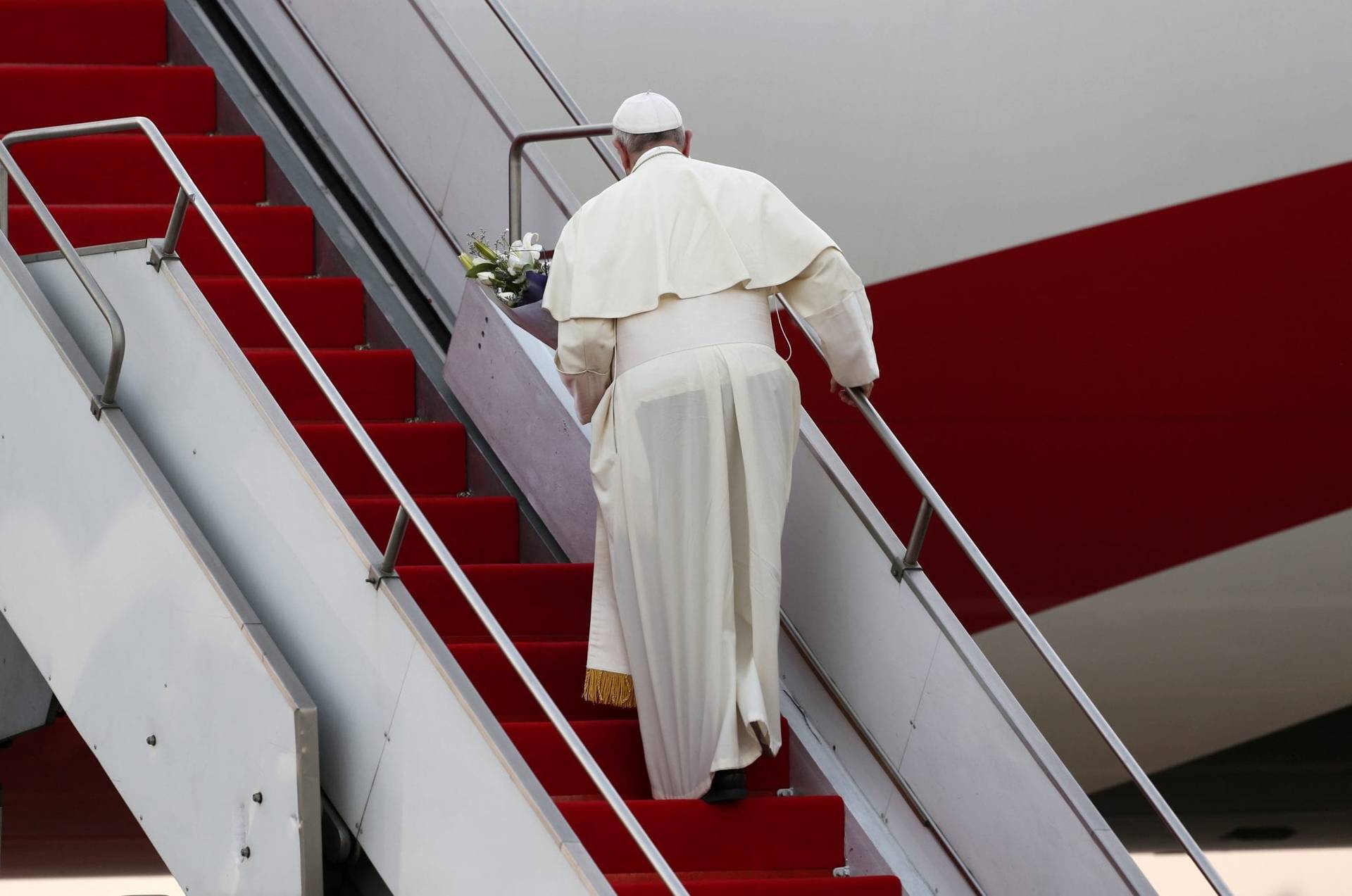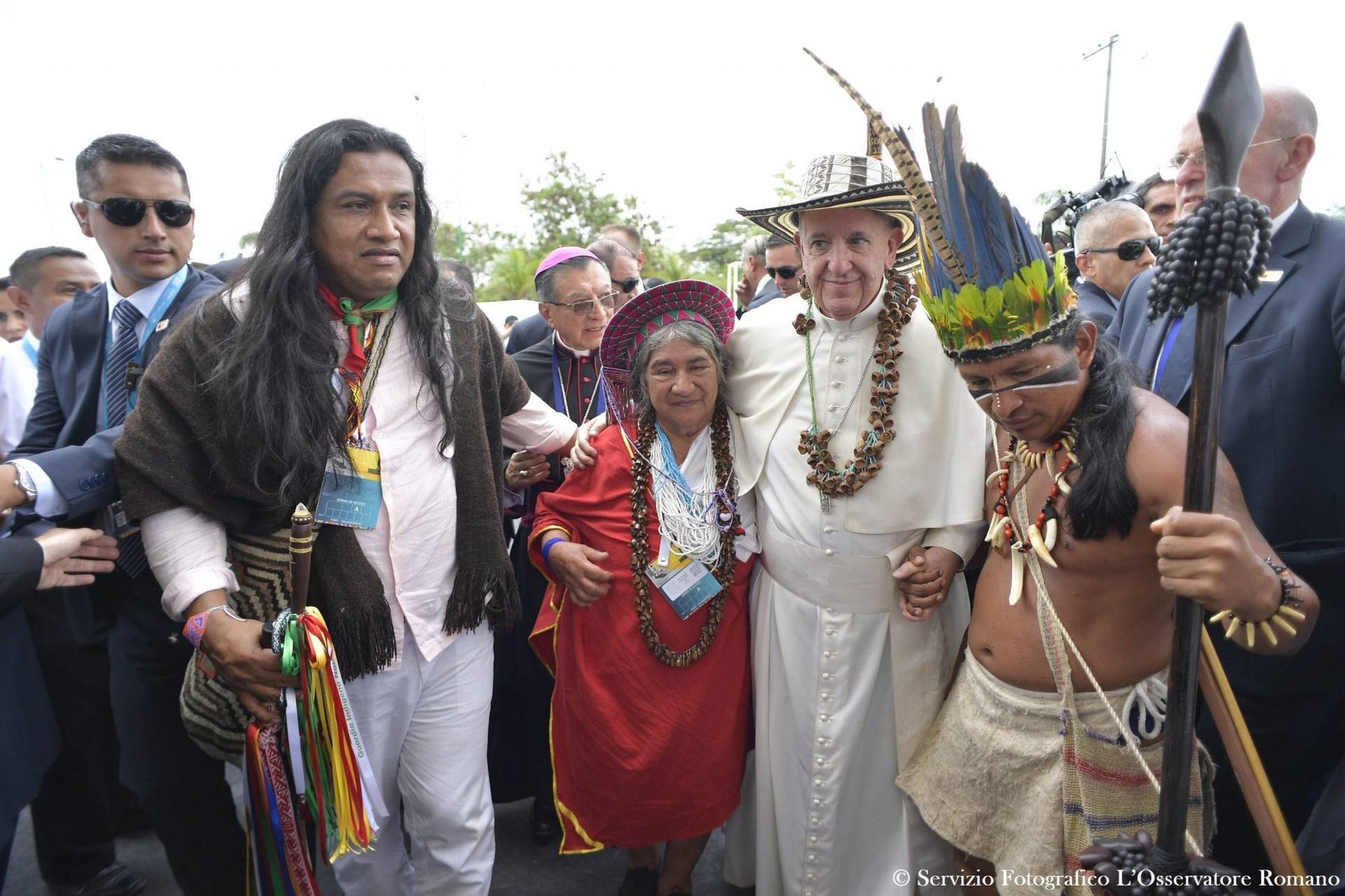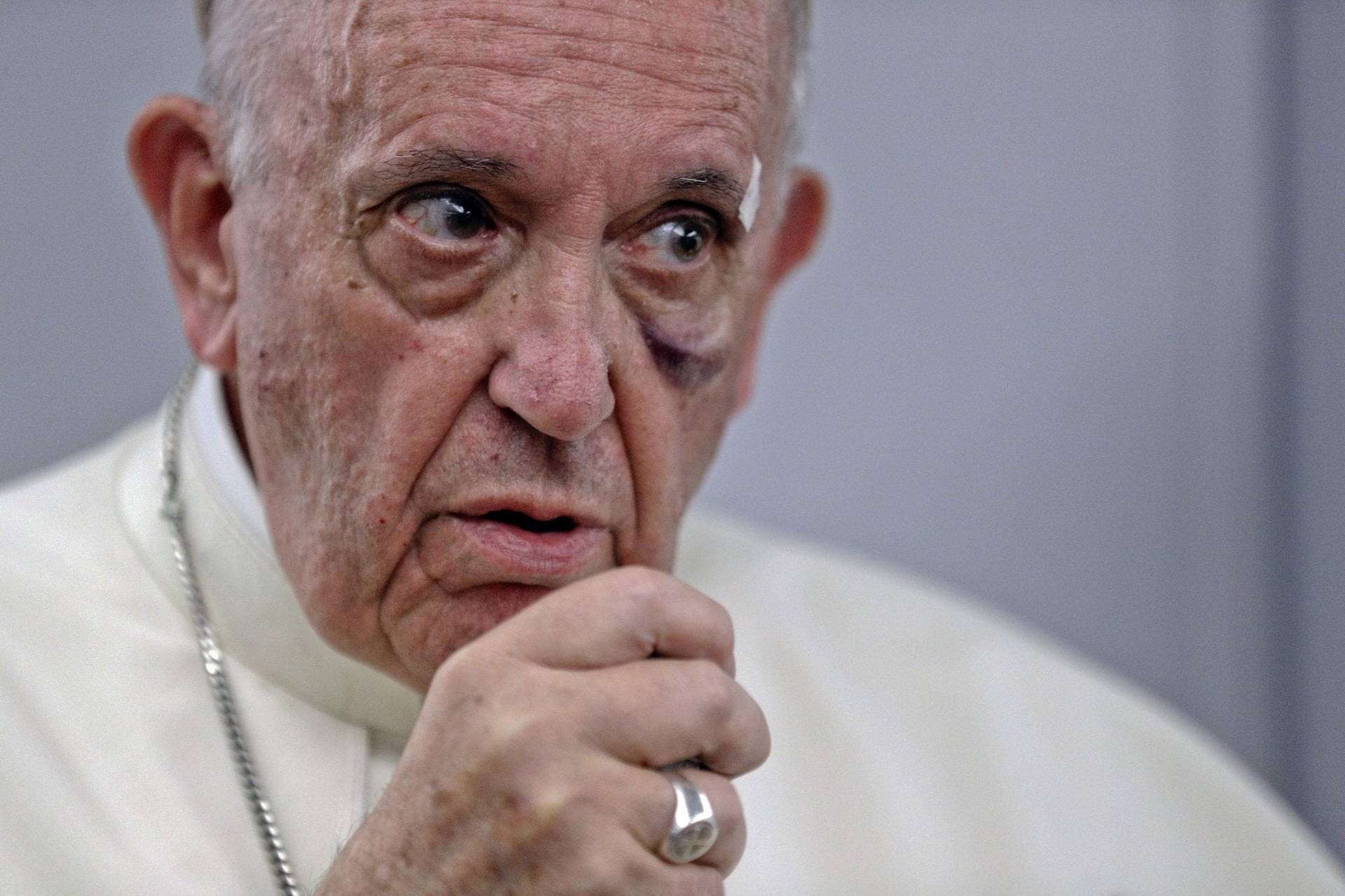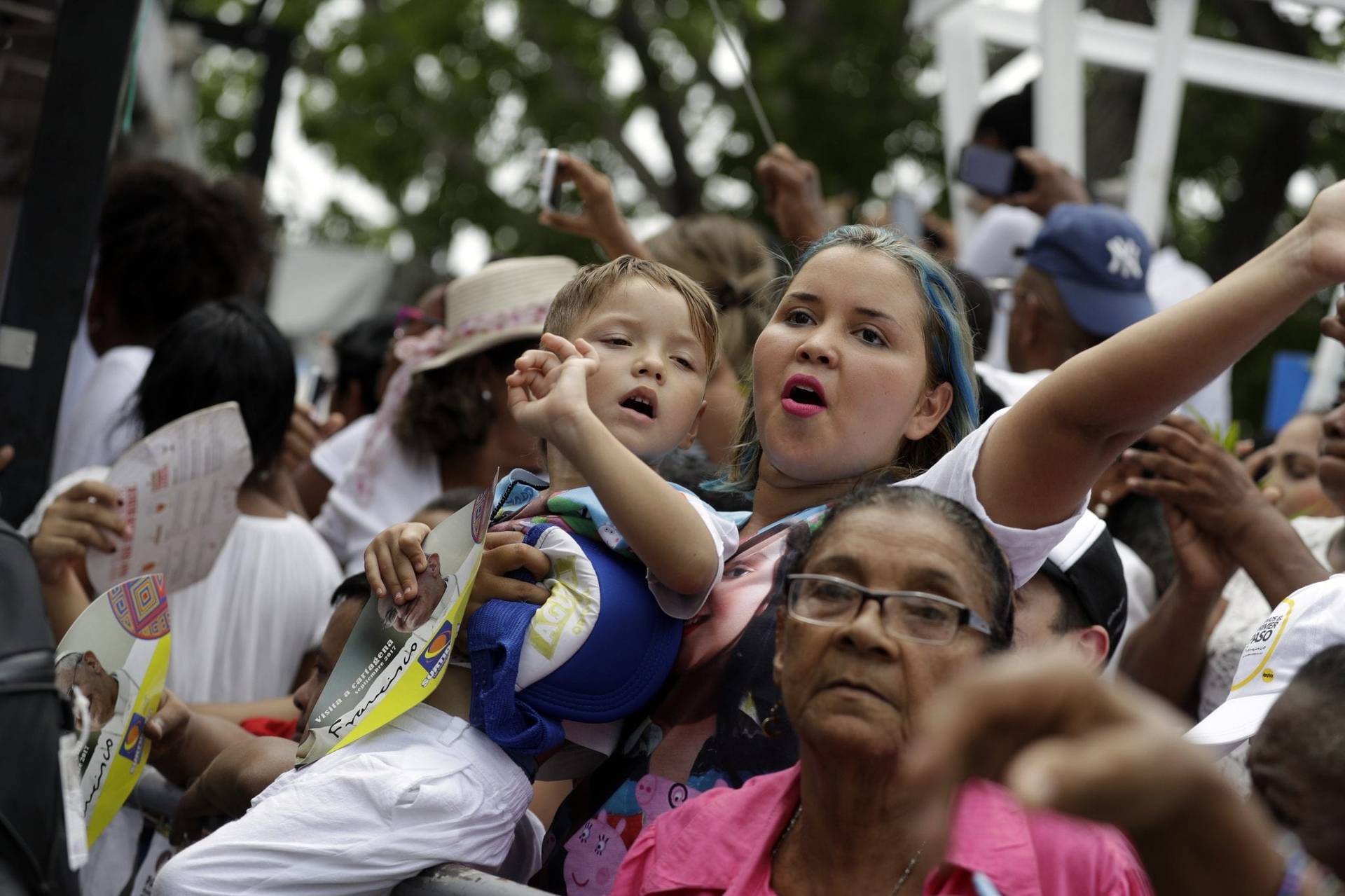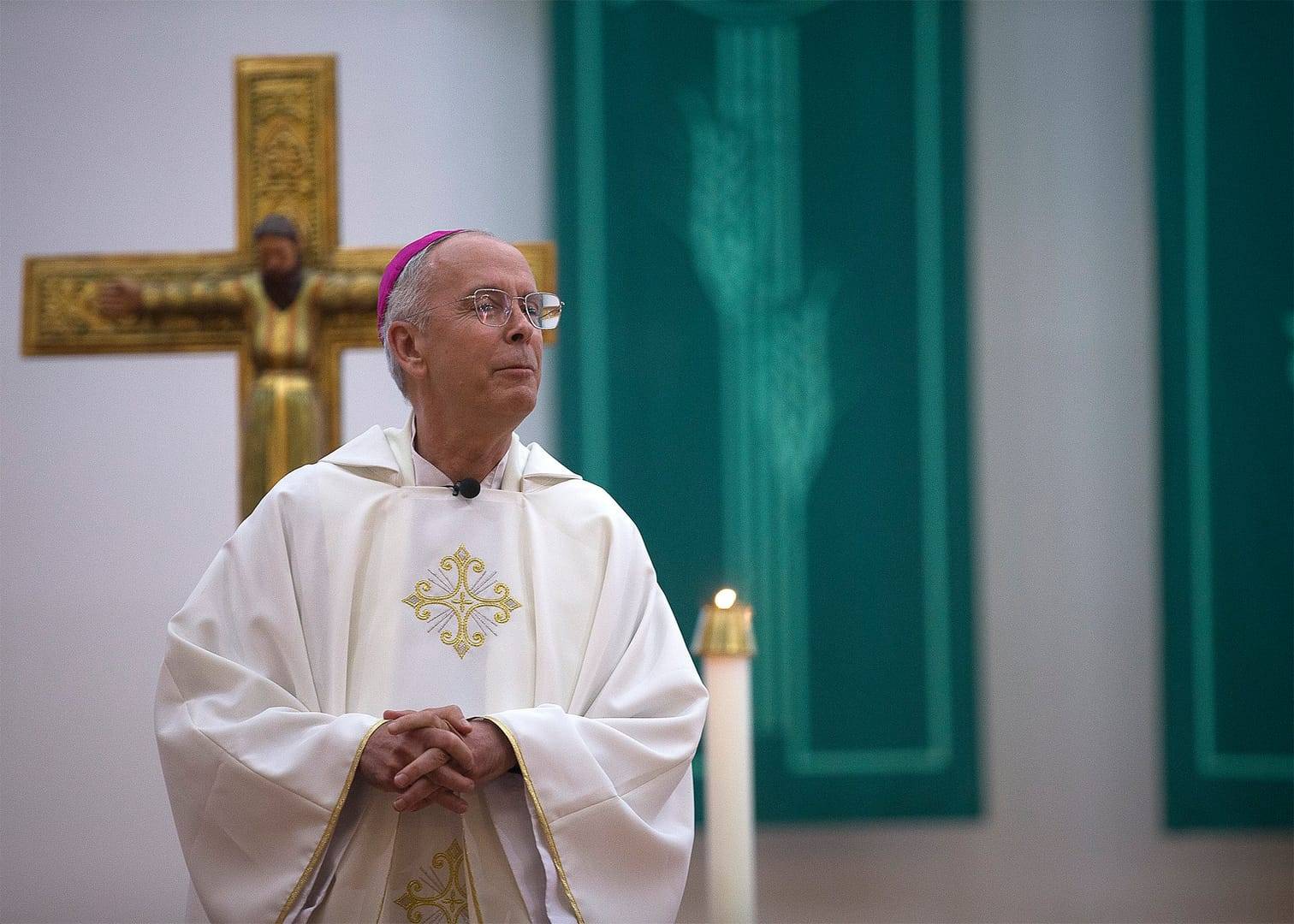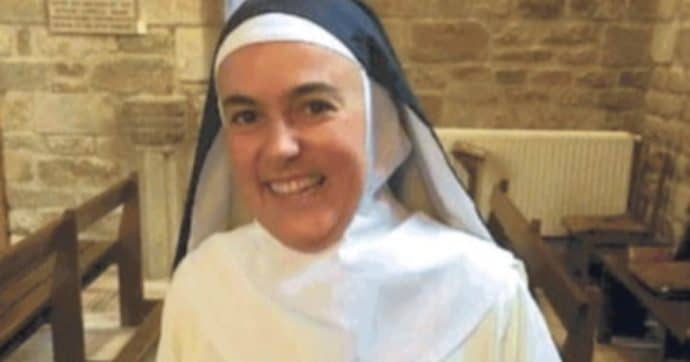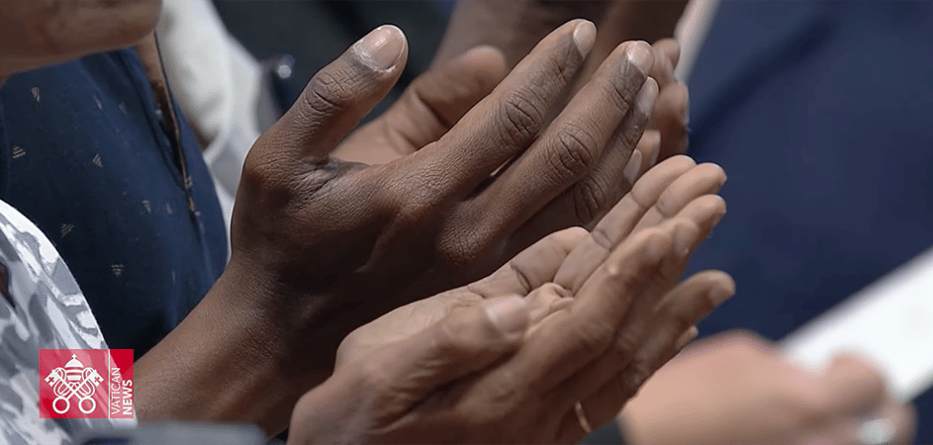MEDELLIN, Colombia– Pope Francis said Saturday that following Jesus is much more demanding than following a set of rules, and being paralyzed by a rigorous interpretation of the law.
Instead, he said, it presupposes other priorities, such as reaching out to encounter the sick and the sinners.
“We cannot be Christians who continually put up ‘do not enter’ signs, nor can we consider that this space is mine or yours alone, or that we can claim ownership of something that is absolutely not ours,” Francis told Colombians.
Jesus, Francis said, told his disciples that in order to be fulfilled, they must follow him on a path that will put them among “lepers, paralytics and sinners,” instead of blindly following “precepts, prohibitions and mandates that made them feel secure.
“Jesus’ freedom contrasts with the lack of freedom seen in the doctors of the law of that time, who were paralyzed by a rigorous interpretation and practice of that law,” the pope said.
Francis’s words came in his homily at a Mass in Colombia’s Medellín, a city once plagued by violence, former capital of the kingdom of drug dealer Pablo Escobar, and today home to a thriving social entrepreneurship scene.
It also happens to be the Catholic capital in this country, with 1,200 priests and many new vocations to religious life. For this reason, the theme of the day is “The Christian Vocation and Apostolate.”
According to local authorities, an estimated 1.2 million people participated in the celebration.
RELATED: ‘Hate leads to hate, death to death,’ Pope Francis tells Colombia
Years before becoming infamous for the prevalence of organized crime, Medellin hosted a famed 1968 meeting of Latin American bishops which helped enshrine the “option for the poor” as a fundamental priority.
It was for this event that Paul VI became the first pope to visit Colombia and Latin America in August 1968.
Jesus, the pontiff insisted during his homily, doesn’t live a “superficially ‘correct’ observance,” he brings the law to its fullness. He expects for those who follow him to do so “in such a way as to go to what is essential, to be renewed, and to get involved.”
Going to what’s essential, Francis said, doesn’t mean breaking with the things that “do not suit us,” because Christ came to fulfill the law, not abolish it.
Being disciples doesn’t mean being faithful to making a doctrine explicit, but experiencing God’s presence and a constant formation that comes from listing to his word, which makes itself known through the concrete needs of others.
Being renewed, Francis said in Medellín, means being “shaken” to set aside comforts and attachments: “We should not be afraid of renewal.”
The Church, he said, always needs to be renewed, however not on “her own whim,” but rooted in the faith, never shifting from the Gospel. Renewal, the pope added, “entails sacrifice and courage, not so that we can consider ourselves superior or flawless, but rather to respond better to the Lord’s call.”
God, he said, invites the Church to reflect on regulations when “our following him is at stake,” when his wounds and cries of hunger and thirst for justice “call out to us and demand new responses.”
Making the first direct appeal to Colombians in the homily, the pope said that there are many situations where “disciples must embrace Jesus’ way of life,” particularly love transforming into peace and reconciliation.
Those who follow Christ, the pope continued, must get involved, even if it seems one is “getting yourself dirty.”
Getting involved, he said, means “being brave and to have the courage to evangelize, which comes from knowing that there are many who are hungry for God and for dignity. Don’t stop those who want to encounter God,” he said.
Going off-script, the pontiff said, in an image he’s used before, that the Church is not a “customs office,” and that it has its doors open because the “heart of Christ is not only opened, but pierced by the love that became pain.
“The Church is not ours, she is God’s; he is the owner of the temple and the field; everyone has a place, everyone is invited to find here, and among us, his or her nourishment,” he said.
He used Saint Peter Claver to exemplify this, patron of Colombia and who Francis will honor on Sunday, his last day here, when he visits Cartagena. “Slave of the blacks forever” was the motto of the Jesuit missionary, who dedicated his life tohelping slaves and whose feast the Church celebrates on Sept. 9.
Claver, the pope said, understood, “as a disciple of Jesus,” that he couldn’t be indifferent to the suffering of those most in need and mistreated in his time and understood that “he had to do something to alleviate their suffering.”
Francis closed his homily urging Colombians to be “missionary disciples” who see the reality with the eyes and heart of Christ, not with hereditary shortsightedness.
“Disciples who risk, act, and commit themselves,” he said.
Hundreds of thousands waited for hours, many arriving on Thursday evening, to participate in the Mass, despite the heavy rain that fell during the early hours of the day.
In addition, Francis arrived an hour later than expected to the site, in the Olaya Herrera airport. He was supposed to transfer from the military base where he landed from Bogotá to the Mass site in a helicopter, but due to lack of visibility, he was driven there.
The pope referred to this delay at the beginning of the Mass, thanking those present for their “patience, perseverance and courage.”
When he arrived, he was greeted by the local mayor, who presented him with three gifts: a carriel bag, a small leather satchel from Colombia; a poncho and a hat, all of which he wore with a smile.
Arriving to Mass site in #Medellin, Pope Francis receives a carriel (small messenger-like bag), a poncho and a hat from the mayor #ModoPapa pic.twitter.com/1PlzpokGcb
— Ines San Martin (@inesanma) September 9, 2017
After the Mass, Francis was scheduled to have a private lunch, and eventually visit the Hogar San José, a home for children who’ve been abandoned by their parents and also for victims of violence run by the Jesuits, the pope’s religious order. Here he’ll be greeted by hundreds of children, and a girl will share her story with the Argentine pontiff.
If he follows tradition, he might improvise his remarks, as he always does in these private, highly emotional encounters.
Afterwards, the pope will have an encounter with an estimated 12,000 priests, men and women religious, consecrated persons, seminarians and their families in the La Macarena indoor stadium, originally used as a bull fighting arena.







